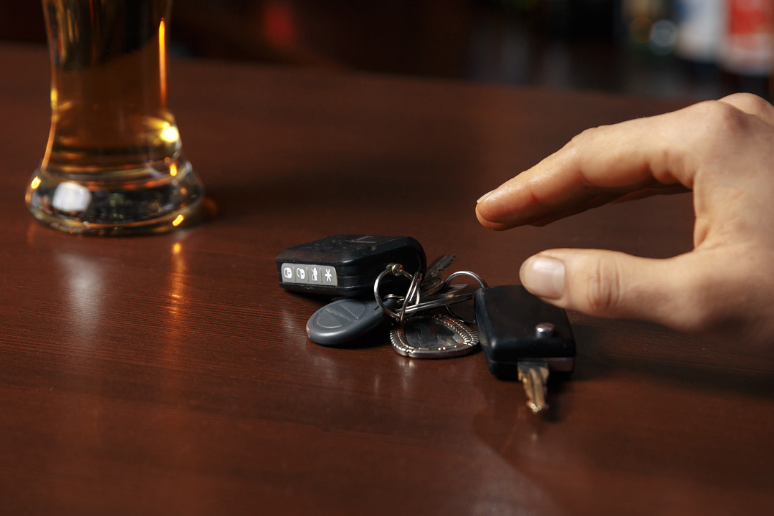Getting stopped and being charged with a DUI or DWI is a serious legal matter in most states. You could face a fine, the loss of your license, be required to attend substance abuse programs, or even a jail sentence.
You may ask yourself whether or not you want to hire a lawyer. In fact, it may feel unnecessary, both financially and for your time, to do so.
But the cost and the inconvenience might be worthwhile depending on the severity of the offense, your offense history, and where it all took place.
What happens when you get pulled over?
Your initial interaction with the officer who pulls you over can affect the outcome of your conviction and the severity of your sentence, so it is important to be prepared. The first thing to remember is that you should turn on your emergency flashers and find a safe place to pull over as soon as you see an officer’s flashing lights or hear sirens. Be sure to turn off your ignition and try to remain calm while you wait for the officer to approach your vehicle.
According to DUI Defense lawyer Benjamin Sessions, the most important thing is to be respectful. “My golden rule is always be respectful. You can be assertive and not necessarily be compliant with all of an officer’s request, but you always need to be careful to be respectful and assume that everything you’re saying there to an officer is being recorded.”
It is important to keep in mind that while in most states the breathalyzer test is mandatory, most other sobriety field tests are completely voluntary. In fact, Sessions generally advises clients that “if you know this in advance, don’t submit to those tests. Don’t submit to the eye test. Don’t submit to the walking test. Don’t submit to the one-leg stand test.”
In Georgia, for example, there is a rule called implied consent law. This law states that on Georgia roads, you give implied consent to take a chemical test to determine if there are drugs or alcohol in your body. These types of tests include providing breath, blood, or urine sample. This law is an agreement that any driver on a Georgia road is required to provide a sample if requested by a police officer if stopped on suspicion of a DUI. If you are pulled over, the police officer must recite the implied consent notice to let the driver know the requirement.
You are not required to submit to a field sobriety test—which can include reciting the alphabet, balancing on one leg, and walking in a straight line—but if you do consent to a field sobriety test, your performance can be used against you whether in an arrest or in court.
However, if you refuse to submit to these field tests remember to do so in a respectful way. If you are rude, defensive, or aggressive, then you will most likely be charged and arrested on the spot. By remaining calm, respectful, and compliant, then you increase your chances of getting a more lenient sentence assuming it is your first DUI offense.
Know your blood-alcohol level at the time of the arrest
A blood-alcohol concentration (BAC) of 0.08 or more at the time of the arrest is all the evidence needed to prove your guilt, no matter where it took place. Even if you did not appear to be visibly intoxicated like staggering or slurring your words, your BAC level alone is all that's needed to convict you.
This is because per se laws, which standardize the legal limit in drunk-driving cases, have been on the books in every state since 2005.
While per se laws will use your BAC to determine your guilt in a DUI case, attorneys still have defenses available to them if you were arrested with a BAC of .08 or higher.
“With a test result that’s above the legal limit, many people, including some lawyers, believe that these can’t be defended because the law says if you’re over the legal limit, you have violated the law. It doesn’t matter if your driving is perfect,” Barone says, highlighting what he sees as a common misconception that might encourage someone not to seek legal help for their DUI.
An attorney’s role in these cases is dependent on his understanding of the way BAC tests are administered and the science behind them. Calling the validity of the test results into question is recourse an attorney has in a DUI case that the average person facing a charge will not. Specifically, a DUI lawyer will be the best choice since they are experts in DUI laws and the ones pertaining to the state you are in. Legal talk can be confusing and inundated with legal jargon, so the attorney will be able to explain the charges and recommend what is the best course of action for their client as well as represent the client in court.
Is this your first DUI offense?
If it’s your first arrest and you intend to plead guilty, you don’t necessarily need a lawyer. Provided the intoxicated driving did not cause an accident or injury—and your blood-alcohol level was not unusually high—prosecutors will likely offer a standard sentence or plea offer for first-time offenders, regardless of whether the defendant is represented by a private attorney, public defender, or no representation at all. So it might not be worth it to hire an attorney in a first DUI offense.
However, the nature of your first-time penalty can vary widely depending on the state in which the offense occurred or even in which district the case is being tried.
In New York, a first-time DUI charge carries with it a fine between $500 and $1000, a maximum jail term of one year, and a license revocation for six months, according to the state’s Department of Motor Vehicles.
In Michigan, by contrast, the consequences for your first offense are a fine between $100 and $500 and up to 93 days in jail, or up to 360 hours of community service, as outlined on the Michigan Department of State’s official government page.
In New Jersey, a new drunk driving law took effect recently. For most first offenders, they will not have their license suspended. It also required all motorists who are convicted of a DWI to install ignition interlocks, which are in-car breathalyzers that prevent the vehicle from moving/operating as normal if the driver's breath registers too much alcohol.
The extent to which these penalties are enforced can also vary.
“Most courts in most jurisdictions do not impose jail time for a first offense,” Patrick Barone, a DUI defense attorney in Michigan and the author of “Defending Drinking Drivers,” says of Michigan’s drinking and driving laws. “It’s straight probation. There might be community service; there might even be a weekend alternative work program, but no nights in jail. Some courts, in some jurisdictions, everyone goes to jail. It doesn’t matter what the person’s background is, it doesn’t matter what the facts of the case are: Virtually every drunk driver goes to jail.”
The likelihood of receiving a severe penalty increases if you have prior DUI arrests on your record: A second DUI could cost you between $1000 and $5000 with up to four years in prison in New York—or between $500 and $5000 in Michigan.
An attorney can help you plea bargain
If it is your first offense, depending on your blood-alcohol level and your driving record, you might be able to plea bargain where you don’t contest your guilt in exchange for a minimal sentence. This is where an attorney with knowledge of the prevailing climate in your location and the local prosecutors is most able to help. There are various plea bargaining strategies that an experienced attorney can use to obtain a favorable outcome for their client. Some states acknowledge “wet reckless driving” charges, which is when a DUI Is reduced to reckless driving with alcohol involved.
In instances where you’re unsure of how to proceed with your plea—are you pleading guilty or no contest, for example—the advice of an attorney could be helpful in determining your next move. At the very least, you can seek advice rather than hiring someone for a full-fledged case, and you can potentially argue your case down to a lesser charge.
The advice of a lawyer for reducing your charges is also helpful in navigating the collateral consequences for a DUI charge—that is, the penalties you will face that do not involve fines, licensing suspensions, or jail time. It's worth it to hire the best DUI attorney you can afford.
What if you’re innocent?
Proving your innocence against DUI charges will depend on your ability to challenge or dismiss the evidence against you, particularly if the arrest and investigation were conducted in bad faith. In such an instance, an attorney offers important expertise and advice. Although there are instances where this is out of your hands, the advice mentioned earlier on how you react when you first get pulled over can be helpful.
“Was the stop valid? Was the arrest valid? Did the police follow their own procedure in conducting their investigation? Those are all things that a well-trained attorney would look for,” Barone says.
The statistical likelihood of being acquitted for your DUI is also dependent on where you are being tried.
A 2011 investigative report by the Spotlight team at the Boston Globe, however, found judges in Massachusetts to be especially lenient in DUI cases, particularly in bench-trials without a jury present, with some counties showing acquittal rates above 80 percent.
What to expect after a conviction
After any DUI conviction, you are likely to lose your license for a period of time and will have to pay a fine. Often, but not in every state, you will have to spend time in jail—even for a first-time offense.
Some employers require charges such as DUI’s be reported to them and might take disciplinary action against an employee. This is generally more common in jobs where a potential substance abuse problem could impact lives such as jobs in the medical or transportation fields. A DUI charge could also negatively impact your child custody case.
If you have received multiple DUIs, you might be seen as a “habitual offender.” This title carries with it harsher penalties in the event of another conviction, like losing your license for a longer period of time and spending more time in jail. You may also be charged with a felony, depending on the state. A felony charge carries with it life-long consequences, such as limiting your employment options and your right to vote. You may be able to petition the court to have your license reinstated and to try and have your prior convictions vacated, though this also depends on the state where you were charged.
This article was originally published on May 20, 2019 and was updated to reflect the most current information.
 By Janice Zhou,
By Janice Zhou, 

